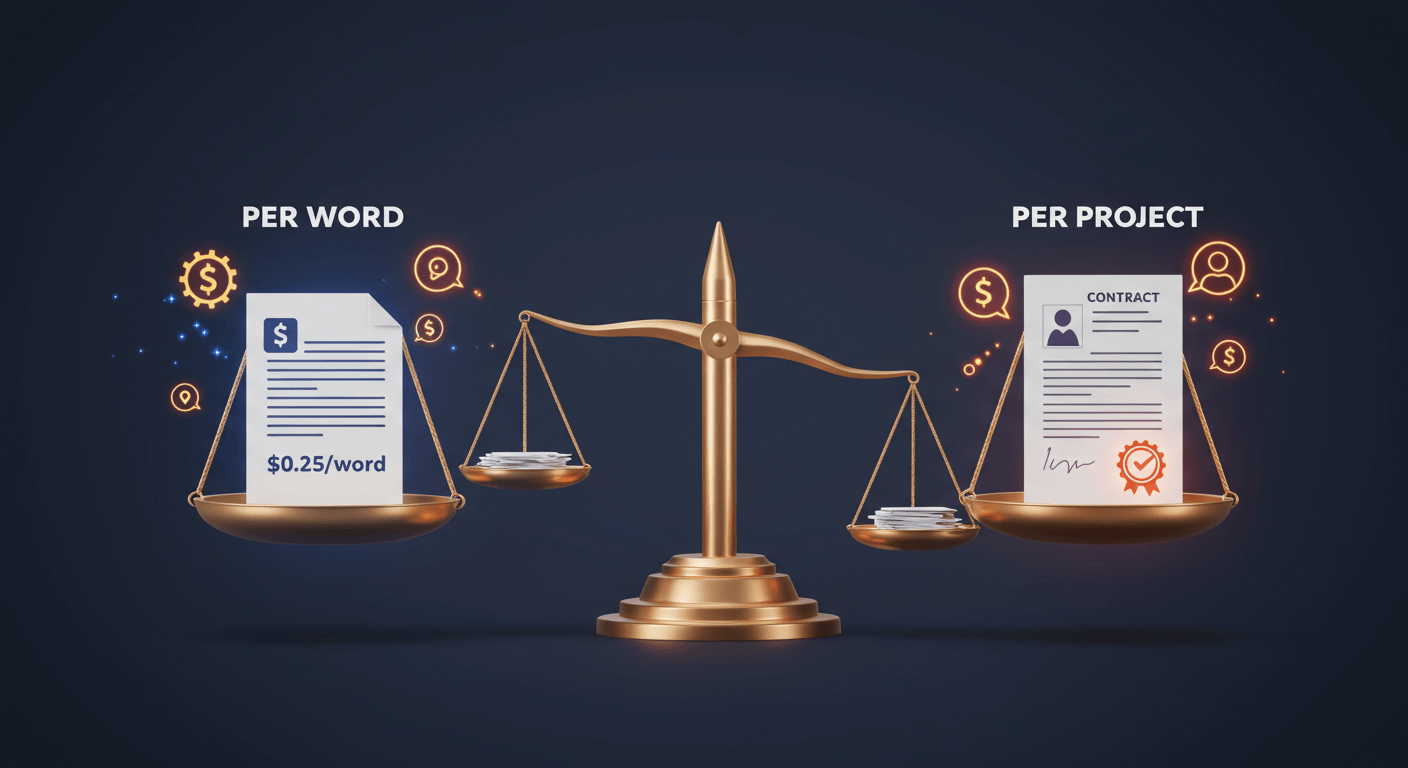Ghostwriting Fees: Per Word vs. Per Project – Pros and Cons You Need to Know

So, you’re ready to hire a ghostwriter. You’ve got big ideas swirling in your head—maybe it’s a book that’ll change lives, a blog series to grow your brand, or articles to position you as the thought leader in your space.
But here’s where things get tricky:
Do you pay them per word… or agree on a flat project fee?
On paper, both options sound pretty straightforward. But trust me, there are some serious pros and cons hiding under the surface. And if you’re not careful, you could either overpay or end up with a product that doesn’t quite hit the mark.
Let’s break it down together—like we’re sitting in a café, latte in hand, figuring out how to get you the best bang for your buck.
Table of Contents
ToggleWhy Ghostwriting Fees Aren’t Just About Money
Here’s the thing—ghostwriting isn’t like buying a new phone or a pair of sneakers. You’re not paying for a thing. You’re paying for:
- Creativity
- Strategy
- Hours of brainstorming, outlining, and rewriting
- And most importantly, someone to bring your voice to life
That’s why the way you pay matters so much. Get it right, and you’ll have a smooth process (and a killer final product). Get it wrong, and… well, let’s just say rewrites aren’t cheap.
Paying Per Word: The “Pay-As-You-Go” Approach
What It Actually Means
Per word pricing is exactly what it sounds like. The ghostwriter charges you for every single word they deliver. So, if they’re asking $0.50 per word and you want a 20,000-word manuscript? That’s $10,000.
Simple math, right? But hold up—there’s more to it than meets the eye.
The Upsides of Per Word
Let’s talk about why this works for some people:
- You know what you’re paying for. The cost directly matches the word count, which means no surprises later.
- Great for smaller projects. Blogs, short articles, or website copy? Per word can feel manageable.
- Want to add more content? You’ll know upfront what that’s going to cost.
The Downsides of Per Word
Now for the flip side:
- Quantity over quality. Writers might pad the word count to bump up the fee. Hello, unnecessary fluff.
- Not ideal for big projects. If you’re writing a book or anything complex, this model doesn’t account for brainstorming, research, or revisions.
- Scope creep city. A few “extra paragraphs” here and there? Watch that invoice climb.
Paying Per Project: The “All-Inclusive” Route
What It Actually Means
This is where you agree on one flat fee for the entire deliverable, whether it’s a 10,000-word ebook or a 70,000-word memoir.
Think of it like a package deal. You’re paying for the ghostwriter’s time, energy, and expertise—not just their words.
✅ The Upsides of Per-Project Pricing
Here’s why this model is a favorite for big, creative projects:
- No surprises. You know the total cost upfront—typically between $2,500 and $10,000, depending on your book’s scope and needs.
- Quality over quantity. The writer focuses on storytelling, not word count, giving your book the attention and care it deserves.
- Built for books. Ideal for long-form projects that need research, deep dives, revisions, and creative flexibility.
- All-inclusive. Everything—from outlining to final draft—is bundled into one clear agreement.
⚠️ Things to Consider with Per-Project Pricing
Before you choose this model, here are a few points to keep in mind:
- Larger upfront cost. It’s a bigger one-time investment, but it covers the entire creative process with no surprise fees later.
- Clear scope is essential. Adding new chapters or changing direction midway may lead to revised pricing.
- Quotes can vary. Two ghostwriters might price the same project differently based on their expertise, style, and process.
- Not ideal for trial-and-error. This model works best when you have a fairly clear vision from the start.
So… Which One Should You Choose?
Here’s the deal:
Neither model is universally better. It depends on what you’re trying to achieve.
Go Per Word if:
- You’re hiring for shorter content, like blogs or social media posts
- You want a pay-as-you-go vibe
Go Per the Project if:
- You’re working on a book, whitepaper, or brand-defining content
- You want peace of mind about the total cost
If you’re writing anything significant (like a memoir or a business book), per project pricing almost always wins. Why? Because it lets the ghostwriter focus on the big picture—not just hitting a word count.
The Hidden Costs Nobody Talks About
No matter which pricing model you choose, keep an eye out for these sneaky extras:
Research and Interviews
Will your ghostwriter interview you (or others) as part of the process? Some include this; others charge separately.
Revisions
Ask upfront how many rounds of edits are included. Two rounds? Unlimited? Or will they charge for every tweak?
Rush Fees
Need it yesterday? Be ready to pay a premium for fast turnarounds.
How to Keep It Fair (For You and the Ghostwriter)
If you want the smoothest ride possible:
- Be clear about your expectations. What’s the scope? Timeline? Deliverables? Spell it out early.
- Don’t go bargain hunting. The cheapest ghostwriter isn’t always the smartest choice. Bad writing costs more to fix.
- Think value, not just price. A great ghostwriter doesn’t just write—they elevate your ideas and make your vision shine. That’s worth investing in.
The Bottom Line
When it comes down to it, ask yourself:
- Am I looking for flexibility and smaller commitments? (Per word might fit.)
- Or do I want a “set it and forget it” style agreement? (Per project is probably better.)
If you’re building something big and impactful, per-project pricing gives you space for creativity, collaboration, and magic.
But hey—at the end of the day, the right ghostwriter will guide you through this decision. And the right pricing model? That’s just the cherry on top.


 +1-786-272-2672
+1-786-272-2672





